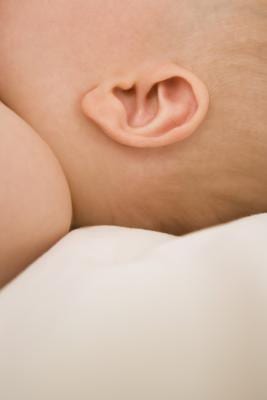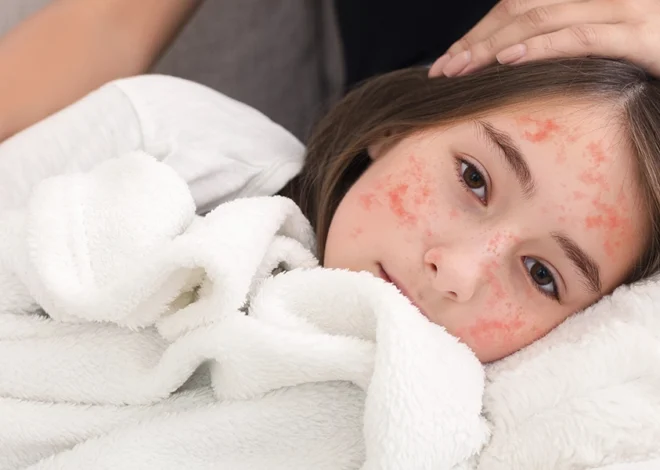An inner ear infection occurs when the eustachian tubes become swollen — usually from a cold or the flu — and a bacteria or virus grows there. Ear infections are a common disease among infants and young children because their middle ear tubes are smaller than those of adults. Knowing when your child has an ear infection can help you fight the pain along with him.
Recognizing Ear Infections
An older child will be able to tell you that her ears hurt, which can be your first sign of an ear infection. If your child is still too young to speak up, you have to look for other signs. This could be seeming discomfort when the child is lying down, tugging at the ears, increased fussiness, a fever of more than 100 degrees F, diarrhea, loss of appetite or loss of balance. They tend to occur after your child has another illness; so keep an eye out for signs of ear infections whenever your child becomes sick.
Treating Ear Infections
If you suspect that your child has an ear infection, a visit to the doctor may be in order. Your doctor will probably prescribe an antibiotic if your child is under 2, or if the pain is particularly severe. Otherwise, the remedies are only to manage the pain.
Managing the Pain
Your doctor may suggest using an over-the-counter pain medication, such as ibuprofen or acetaminophen. Follow the dosage instructions on the package or ask your doctor how much your child should receive. Infants should take medicine that’s specially designed for infants, not the ones designed for children. A hot compress, such as a hot wash cloth, placed over the ear can help alleviate some of the pain that occurs from an ear infection.
Surgery for Ear Infections
If your child still has fluid in her ears after the infection is over, your doctor may drain the fluid and suggest getting “ear tubes.” This is a surgical procedure in which the doctor places small tubes that encourage ventilation into the ear drum. It does not affect your child’s hearing and after the tubes come out — either falling out or through surgery — the ear drum will repair itself.
Preventing Ear Infections
If possible, it’s best to try to avoid ear infections altogether. Avoid things that may irritate your child’s nose and cause a cold, such as second-hand smoke or areas where there is poor air quality. Encourage hand washing and take vitamin C to prevent colds. MayoClinic.com states that breastfeeding can prevent ear infections, but if you bottle feed, try to feed your baby in an upright position.





